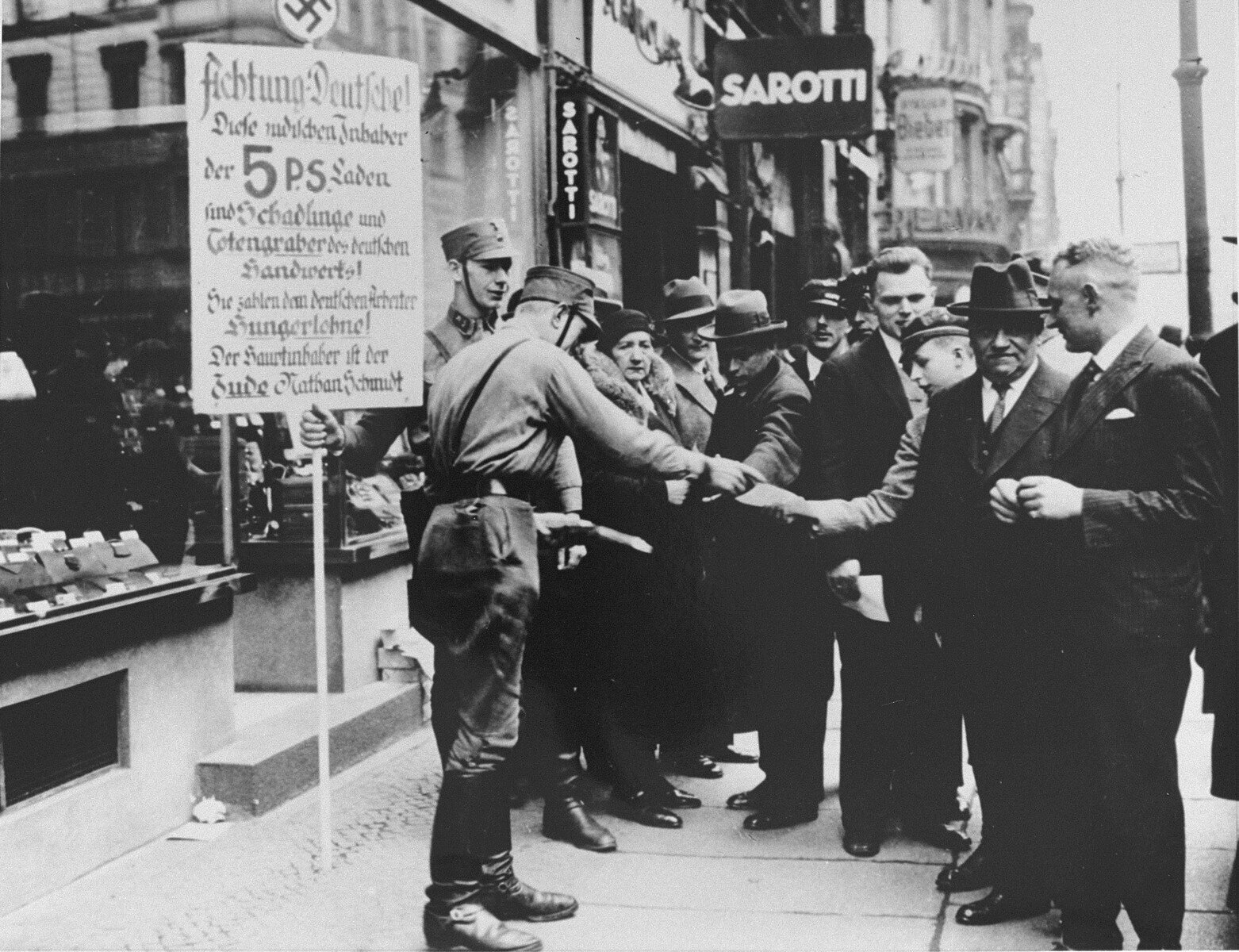Learn & Remember Isolation
INTIMIDATION
SA members post anti-Jewish Boycott signs on Jewish owned businesses in Germany.
SA members post anti-Jewish Boycott signs on Jewish owned businesses in Germany.
In order for this atrocity to take place, the Nazis had to convince the people that these killings were necessary for the public good. Hitler worked to strengthen existing prejudices,
building fear and hatred against groups deemed inferior.
Shortly after Hitler was appointed as chancellor by the German president, he used the people’s existing distrust of communists to convince the people that they were responsible for the burning of the Reichstag.
To combat this perceived threat, Hitler was granted emergency powers. He used these powers to arrest and imprison thousands of political opponents. He quickly suspended every part of the constitution that protected personal freedoms and made it illegal to speak out against the government or criticize its leaders.
(left) SA members rise through Berlin encouraging Germans not to buy from Jewish stores.


SA members distribute boycott pamphlets to the German public. The sign reads: “Attention Germans. These Jewish owners of [five and dime] stores are the parasites and gravediggers
of German craftsmen. They pay starvation wages to German workers. The chief owner is the Jew, Nathan Schmidt.”
Those labeled as outcasts by the Nazis were isolated from society; their neighbors either turned against them or refused to speak up in their defense for fear of their own safety. In the first six months of Hitler’s rule, the Nazis also stepped up their intimidation of their victims using a secret police force known as the Gestapo to spy on, interrogate, and imprison people in order to “protect public safety and order.” The Nazis initiated attacks on homosexual men, people of Jewish descent, regardless of their religion, and anyone who opposed their policies.

Attitudes toward Jews had begun to change as early as 1937. His parents’ stores had attracted many customers until antisemitic propaganda began to be posted throughout the town. His parents feared they would lose their businesses.

When the persecution of Jews began, Hungarians complained that the Jews had everything, but Margaret said Jews worked hard for all they had. Newspapers carried articles that ridiculed Jews, and sometimes they published disrespectful pictures of Orthodox Jews. Margaret was saddened by the disrespect.

The Germans immediately issued decrees imposing a curfew. There were threats of reprisal or revenge for any act of sabotage. Sam’s life did not change much at first. In 1939, he finished school and began working as a representative for various companies, including Merck Pharmaceuticals, Knorr, Faber, and other German businesses.
Exhibit Panels Navigation | Introduction // Intimidation // Exclusion // Separation // Loss // Survival // Aftermath